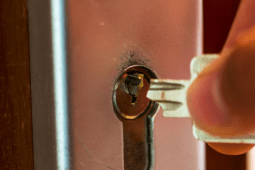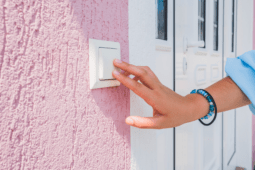How to Improve Your Sleep Schedule: A Man’s Guide to Feeling Rested
![credit: Arne Coomans (cc) [https://www.flickr.com/photos/samo-arne/1397870431] created at: 12/07/2014](https://s3.amazonaws.com/manmadediy-uploads-production/photos/24228/1397870431_c804ae31d1_z_large.jpg?1418018207) I developed pretty intense insomnia during my junior year in college. Admittedly, I was a way-too-involved workaholic at the time, but even when my life chilled out a bit more, I still had lots of trouble sleeping. Like, intense months of sleep issues. So I’ve spent a lot of time investigating ways to improve my sleep schedule and here are some of the top tips I’ve found…
I developed pretty intense insomnia during my junior year in college. Admittedly, I was a way-too-involved workaholic at the time, but even when my life chilled out a bit more, I still had lots of trouble sleeping. Like, intense months of sleep issues. So I’ve spent a lot of time investigating ways to improve my sleep schedule and here are some of the top tips I’ve found…
Start a nightly routine.
This can be anything simple that you repeat each night. Put your room in order, take some time to journal, read a book, take a bath, etc. Taking a shower/bath before bed has the added benefit of cooling your body down when you get out which can help induce drowsiness.
![credit: f.lux [https://justgetflux.com/] f.lux](https://s3.amazonaws.com/manmadediy-uploads-production/photos/24243/flux_large.png?1418019718) Avoid “blue light.”
Avoid “blue light.”
In a pre-industrial era, bodies naturally produced melatonin as the sun went down and they light got dimmer. However, thanks to Edison and our post-industrialism work schedules, we tend to stay up much later continually bathing ourselves in light right up until we head to bed. If you can, you should start dimming the lights an hour or two before heading to bed to allow more melatonin to kick in. Most importantly, you should avoid the light of computer screens, phones, and televisions – what’s known as “blue light.” Thankfully since I’m going to bet that almost all of us do this anyway, there are some great (FREE) devices that can help with that. f.lux is a software that I use that syncs with your computer’s clock to start slowing shifting the hue of your display to warmer tones as the sun goes down. It can look a little jarring if you’re not used to it, but it makes an incredible difference.
![credit: Greg Rogers [https://www.flickr.com/photos/gregrodgers/7523488962/in/photolist-csPR9W-5yC33Q-6bARy6-5BNtqa-5r4MaZ-5r4MtZ-ojbPa7-6X64cW-5r97xw-a7UyWE-39vuYd-9HnvWm-brNZn-4JbzJc-51kvCz-6Gywbu-fnmazr-72t8Fh-8GAQus-8Dvf6G-6b7N9Z-3qG51a-5Pzizd-5n7d79-7PASFZ-cwTiR-7cWVcR-8x9s9t-7HqZy1-dkwVr7-8otybq-LzbyT-88n6ij-a93yAe-4wJX7V-7n9p2Y-4VY3jR-fxe9du-gDrHN-51LrPC-hkJPqt-bHHnA6-7TsLa4-7QdpRP-4Yr5SM-eEiZn4-8spxe8-4Yr5bZ-a5KgQf-9TzzHU] created at: 12/08/2014](https://s3.amazonaws.com/manmadediy-uploads-production/photos/24230/7523488962_6dab1b7e36_z_large.jpg?1418019407) Limit caffeine intake (duh).
Limit caffeine intake (duh).
If you’re at all like me, this might sounds like I’m telling you to try cutting breathing out of your daily routine. I’m a die-hard coffee addict, but I ended up cutting caffeine out of my diet entirely for 4 months (before I eventually caved). Here’s the deal with caffeine. Your body naturally produces adenosine molecules which bond with your body’s adenosine receptors throughout the day. This bonding causes drowsiness and slows down your nerve cells, which also allows more oxygen into your brain’s blood vessels while you sleep. However caffeine molecules look nearly identical to adenosine; they bond to the receptors but don’t cause drowsiness. In fact, caffeine increases neuron firing which stimulates your pituitary gland, and from there it’s a whole adrenaline party, and good luck getting to sleep. The bummer about this is that caffeine has a half-life of up to 6 hours, which means that half of the initial caffeine intake is still happily operating in your system up to 6 hours later. All this is to say, you should try limiting your caffeine intake in the afternoon, and if you’re having serious trouble sleeping, try knocking it out all together.
![credit: Wikipedia (cc) [https://en.wikipedia.org/wiki/Circadian_rhythm#mediaviewer/File:Biological_clock_human.svg] Sleep Schedule](https://s3.amazonaws.com/manmadediy-uploads-production/photos/24244/1200px-Biological_clock_human.svg_large.png?1418019720) Stick to a sleep schedule.
Stick to a sleep schedule.
Our bodies have a natural circadian rhythm, which means that are bodies perform their processes best around certain times of the day. Going to sleep at the same time each night will foster a solid sleep-wake cycle and help your body perform at its best. However…
If you can’t sleep, get up.
Lying in bed worrying about how you can’t sleep, how it’s going to throw of your day tomorrow, etc., is never going to help. In fact, Harvard Med and the Mayo Clinic tell you to get up and walk around. Read a book, watch something, get a snack. Your body will get drowsy again and it’s better to wait it out than to stress yourself. It’s also recommended that you move to a different room so as not to associate your potential sleep anxiety with your bedroom.
![credit: Anthony Catalano [https://www.flickr.com/photos/badwsky/12048036333/in/photolist-8aVEgt-6YwS34-711Ps2-46Pw3z-jmDksn-5UqFFB-9LxRUa-ek2iyQ-drNibS-7cHTpP-4LLwW7-ds3tfU-apShWk-57THCC-3MNdmK-8sepe-5Bn5U2-bJ5eeg-8pk19u-a97PHZ-8SUcwi-e2qcQu-8uWLzL-ohK5-6eQPcG-ebVDRT-gQ1EcB-5n7LaR-eirn5g-3vCKb-cfBMcN-s5Hee-4uDBv3-5jwebM-7BDNM7-asqmHb-aWJQ2k-s5F29-dE9ERk-by9Udr-i2XPYh-bEvbVt-brvHBh-6rF7WZ-8fvrbm-756ffs-aXQXNT-9D77g1-i2XGgq-tgGov] created at: 12/08/2014](https://s3.amazonaws.com/manmadediy-uploads-production/photos/24229/12048036333_19e5021c00_z_large.jpg?1418018933) Exercise daily.
Exercise daily.
We all know exercise has its benefits so I won’t list them here, but seriously it helps you sleep and you should do it anyway. Just as a general note: similar to the effects of caffeine, adrenaline from workouts tends to stay active in your body for a couple hours. However, studies still indicate that people who had trouble sleeping still saw improved sleep from working out right before bed over those who didn’t work out at all.
Good. Got it? Now, go get some rest.
Edited from a post originally published on December 4, 2014.









